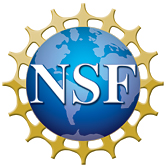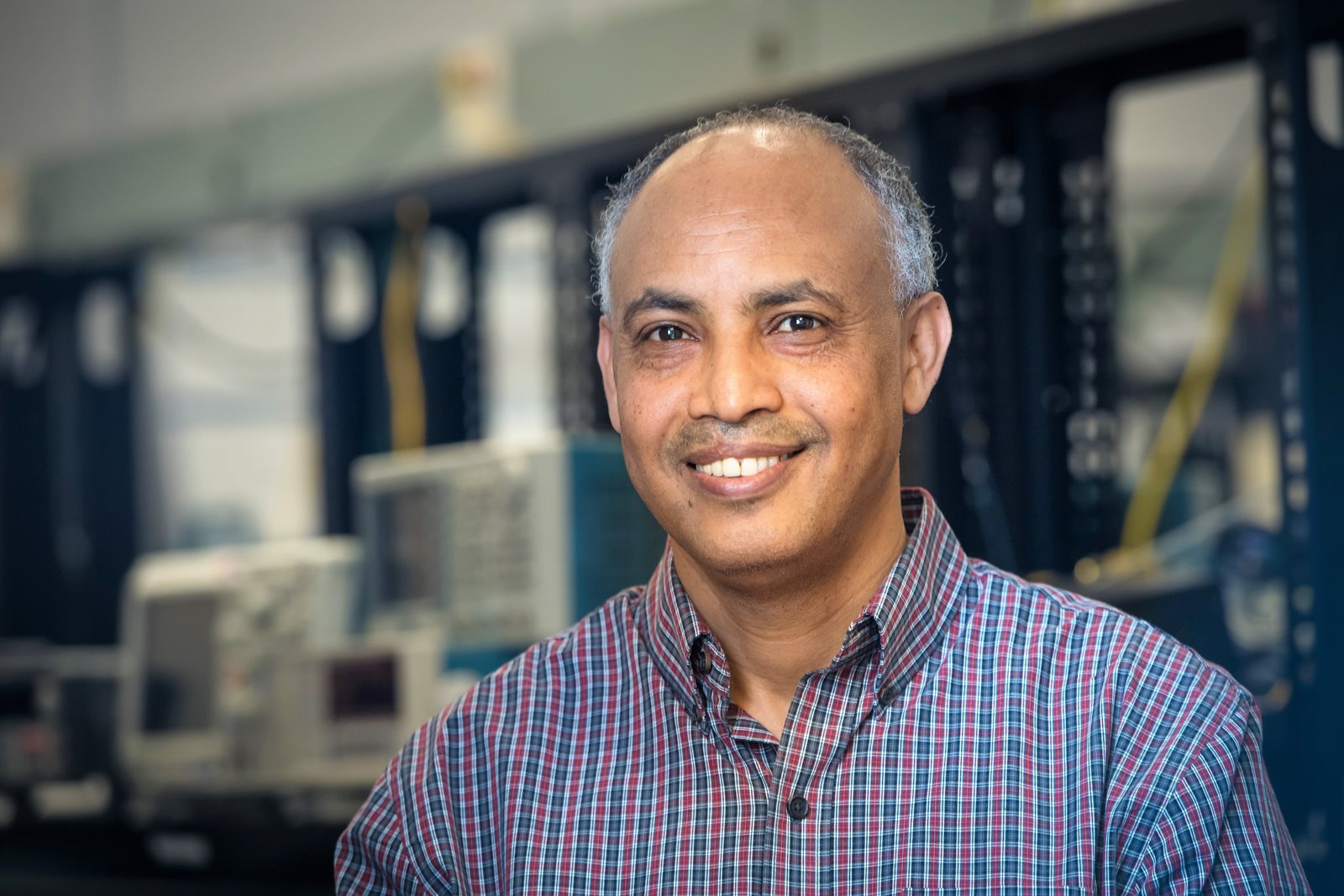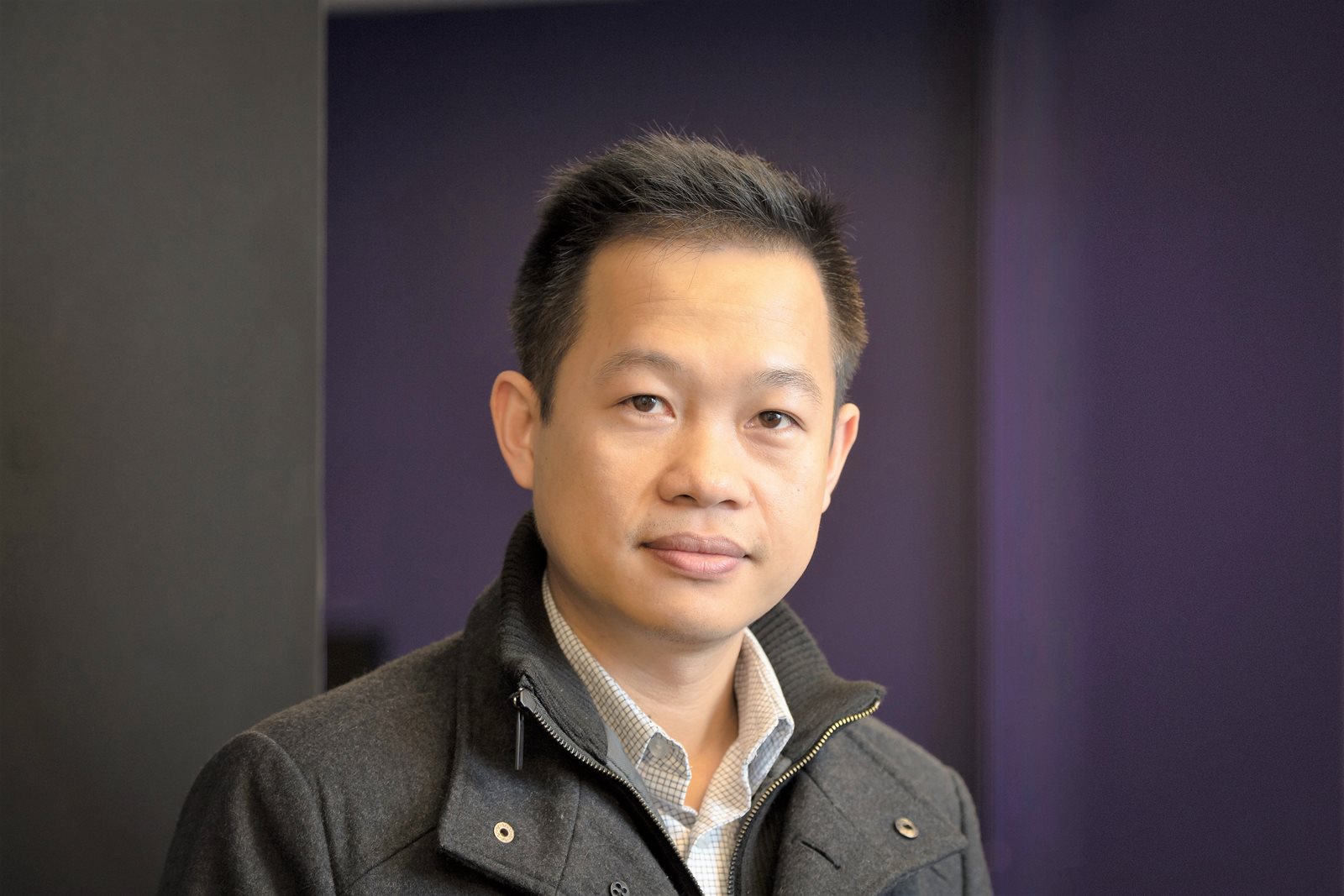
By Douglas Esser
The National Science Foundation awarded the University of Washington Bothell nearly $367,000 to support undergraduate research into biomedical technology. Undergraduates will have the opportunity to join three faculty members developing microbiosensors coupled with wireless transmission. This research might lead, for example, to an electronic patch that could continuously monitor a person’s blood pressure.
Each summer for three years, the Research Experience for Undergraduates (REU) grant will support a group of students — three local and seven from across the country — in a 10-week intensive training and research experience. By immersing themselves in work on low-cost, comfortable monitoring devices, students will develop research skills and may become more interested in graduate school.

“Another very important factor is to motivate women and minorities to pursue science and engineering,” said Associate Professor Tadesse Ghirmai, the principal investigator for the REU.
Ghirmai applied for the NSF grant with Assistant Professor Hung Cao and Assistant Professor Geetha Thamilarasu. Ghirmai and Cao are in the engineering and mathematics division, and Thamilarasu is in the computing and software systems division, all in the School of Science, Technology, Engineering & Mathematics.
Research in biomedical devices is particularly well-suited to UW Bothell’s interdisciplinary approach and to the expertise of all three faculty members: Cao’s device fabrication, Ghirmai’s signal processing and Thamilarasu’s data security.
They’ve been helped in starting the REU by the math REU that UW Bothell hosted the past three summers under the direction of Professors Jennifer McCloud-Mann and Casey Mann. The new REU team has six projects:
• fabrication of flexible microelectrode array patches for bio-potential recording,
• miniaturization of recording and communication circuits on flexible substrates,
• filtering and classifying electrocardiogram (ECG) signals,
• extracting fetal ECG from the combined fetal-maternal ECG,
• secure “internet of things” connected health care, and
• machine learning-based anomaly detection.

Each faculty member will be responsible for the students in two projects. Cao will welcome the students into his research lab where tiny electronics can be created for monitoring heart and brain signals. Ghirmai is working on a way to separate a fetal ECG from the mother’s. Thamilarasu studies how to keep such signals secure.
“Next generation medical devices offer significant healthcare benefits, but if these devices are developed with no security features, they can be easily compromised, raising security and privacy concerns that can potentially lead to serious medical consequences,” said Thamilarasu.
The quality of REU students brings prestige to UW Bothell and helps create a culture that encourages more students to pursue a doctorate, Cao said.

“They’re going to bring energy and motivation to our current students on campus,” Cao said.
REU students will receive a $5,000 stipend plus campus housing. In addition to conducting research, they will take short courses in professional development and in using the MATLAB software favored by scientists. The REU is taking applications for the program that will run from June 17 through Aug. 24.
Having research experience as an undergraduate is an eye-opening experience, said Thamilarasu, who says she benefited from such mentoring. “It’s the main reason I’m here today as faculty, because it initiated my interest in research.”



